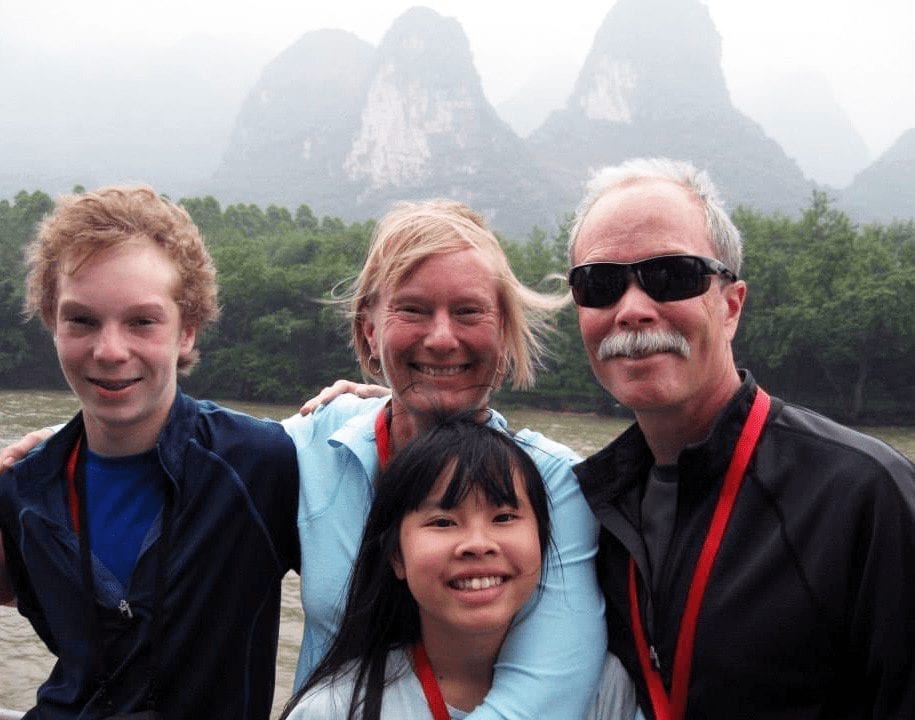by Adam Hureau
Many adoptees want to explore their heritage
China has always had a special place in my family. In 2002, my parents came home from China with my sister. Ever since she came home, I have always felt a unique bond with the country. I realized I wanted to learn more about the place where my sister came from, so I started learning Chinese. I learned about the complexities of the language and the country’s fascinating culture and history. Now, having been to China twice, I believe that we can learn a lot from adoption and how it can help our understanding of China.
In many ways, adoptees represent what the United States stands for: they come to the U.S from bad situations and are able to live successful lives. But while they are American citizens, many adoptees want to explore their heritage and the country they came from. Chinese adoption has created a strong bridge between the U.S and China that is seldom seen elsewhere.


China has always had a special place in my family. In 2002, my parents came home from China with my sister. Ever since she came home, I have always felt a unique bond with the country. I realized I wanted to learn more about the place where my sister came from, so I started learning Chinese. I learned about the complexities of the language and the country’s fascinating culture and history. Now, having been to China twice, I believe that we can learn a lot from adoption and how it can help our understanding of China.
In many ways, adoptees represent what the United States stands for: they come to the U.S from bad situations and are able to live successful lives. But while they are American citizens, many adoptees want to explore their heritage and the country they came from. Chinese adoption has created a strong bridge between the U.S and China that is seldom seen elsewhere.
When my sister was younger, my family used to drive up to the mountains each Labor Day weekend for a retreat called “Chinese Heritage Camp.” Put on by the Colorado-based Heritage Camps for Adoptive Families Association, this camp brought together children adopted from China and gave them a chance to explore their heritage together through cultural and educational activities. There was always a special atmosphere at this place. Families celebrated China and Chinese culture, appreciating the link that adoption had given them.
My sister was something that connected us
I saw this again in 2014, when my family traveled to China on a tour designed specifically for adoptive families. We were grouped with families from all over the country with similar backgrounds and stories as us. As we traveled from city to city, my sister could see the country she came from. We saw the sprawling Forbidden City in Beijing, experienced the laid-back lifestyle in Chengdu, and took in the majestic Karst mountains that line the Li river. Perhaps the most profound part of the trip was when we got to see my sister’s orphanage. My sister was born in Hunan province in a small city called Changde. This city was nothing like the other sprawling cities we had been to on the tour. We were the only foreigners in sight, making us feel uncomfortable and a little nervous. But when we arrived at the orphanage, we were greeted with kindness by the orphanage director and all apprehensions slipped away. We talked about the history of the orphanage and how it had changed. We talked about my sister’s life in the U.S. Despite being from very different countries, the adoption of my sister was something that connected us.
Approach China with curiosity and a willingness to learn
This experience opened my eyes in so many ways. Standing there and seeing with my own eyes where my sister came from was so fascinating to me. What was especially amazing was how nice everyone was to us. The employees at the orphanage were happy to meet my sister, to see what her life was like. The kindness I saw that day showed me that it is possible for us to build a bridge with China. Amidst all the political rhetoric, we forget how important it is to be connected with China. It is a country with people not too different than we are. Their willingness to welcome my sister and our family speaks volumes about the Chinese people.
The connection my family and other adoptive families have with China is something I think we can all learn from. Families with adopted children are forever connected with China, despite language or cultural barriers. This is something we can achieve as well. We don’t have to treat China as a political enemy or a scapegoat for our economic misfortunes. If I’ve learned anything from my sister’s adoption, it’s that if we approach China with curiosity and a willingness to learn, we will all be better from it.

